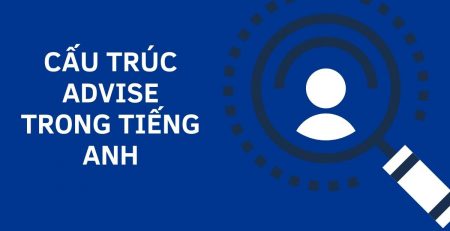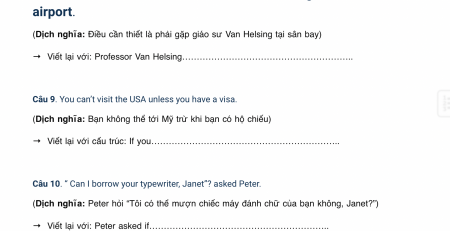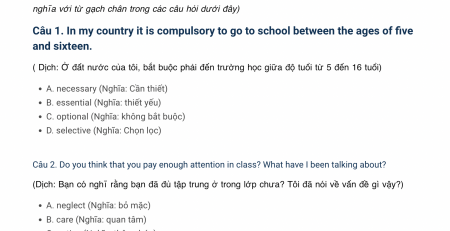Nâng band điểm xuất sắc cùng bộ từ vựng IELTS Holidays

Ielts là sự kết hợp của 4 kỹ năng, để band điểm của bạn cao thì bài làm phải thực sự xuất sắc. Vậy bạn cần làm thế nào ? Trước hết, chắc chắn ngữ pháp bạn phải chuẩn và vốn từ vựng phải chuyên sâu. Tiếp tục series bộ từ vựng IELTS, Patado giới thiệu tới bạn đọc chủ đề Holidays. Hãy cùng khám phá xem bạn sẽ biết thêm được bao nhiêu từ sau bài viết này nhé!
Hé lộ bộ từ vựng IELTS “siêu chất” chủ đề Society ít ai biết (Phần 1)
I. Các từ vựng IELTS Holidays
1. Các loại hình du lịch và các kỳ nghỉ
| Inbound travel | /ɪnˈbaʊnd ˈtrævəl/ | Du lịch trong nước |
| Outbound travel | /ˈaʊtˌbaʊnd ˈtrævəl/ | Du lịch nước ngoài |
| Backpacking | /ˈbækˌpækɪŋ/ | Du lịch bụi, phượt |
| Hiking | /ˈhaɪkɪŋ/ | Du lịch sinh thái |
| Leisure travel | /ˈlɛʒər ˈtrævəl/ | Du lịch nghỉ dưỡng |
| Adventure travel | /ædˈvɛnʧər ˈtrævəl/ | Du lịch khám phá mạo hiểm |
| Trekking | /ˈtrɛkɪŋ/ | Du lịch với hành trình dài đến những nơi hoang dã |
| Short break | /ʃɔrt breɪk/ | kỳ nghỉ ngắn ngày |
| Sightseeing | /ˈsaɪtˈsiɪŋ/ | Đi tham quan chủ yếu nhằm mục đích đi và ngắm cảnh |
| Package tour | /ˈpækəʤ tʊr/ | Kỳ nghỉ trọn gói |
| Holiday of a lifetime | /ˈhɑləˌdeɪ ʌv ə ˈlaɪfˌtaɪm/ | Kỳ nghỉ mang ý nghĩa đặc biệt trong đời |
| Self-catering | /sɛlf–ˈkeɪtərɪŋ/ | Kỳ nghỉ mà bạn cần phải tự phục vụ đồ ăn |
| Tourist trap | /ˈtʊrəst træp/ | Nơi nhiều khách du lịch đến và khách du lịch thường bị bóc lột bằng cách lấy tiền đắt |
| Wildlife safari | /ˈwaɪlˌdlaɪf səˈfɑri/ | Chuyến đi thám hiểm động vật hoang dã |
2. Các danh từ chỉ người

Bạn đọc hãy tham khảo các từ vựng liên quan đến những người liên quan đến ngành du lịch sau đây nhé:
- Outbound tourists/ Outbound travelers: khách du lịch trong nước
- Inbound tourists/ Inbound travelers: Khách du lịch nước ngoài
- Visitors: người thăm quan
- The locals/ local people/ residents: Người dân địa phương
- Native people/ Indigenous people: Người bản địa
- Travel agency: Đại lý du lịch
- Travel service providers: Người cung cấp các dịch vụ du lịch
- Tour Guide: Hướng dẫn viên du lịch
3. Các hoạt động
- Go sightseeing: Ngắm cảnh
- Exploit and enjoy pristine beauty: Khám phá và cảm nhận vẻ đẹp hoang sơ
- Go in the low season: Đi du lịch vào mùa thấp điểm
- Go in the peak season: Đi du lịch vào mùa cao điểm
- Partake in outdoor games/ Play outdoor games: Tham gia những hoạt động ngoài trời
- Do extreme sports: Chơi các môn thể thao mạo hiểm
- Buy souvenirs: Mua quà lưu niệm
- Enjoy local speciality: Thưởng thức văn hóa địa phương
- Take pictures: Chụp ảnh
- To get away from it all: To take a holiday to escape a busy or stressful lifestyle – Thoát khỏi tất cả đi du lịch để giảm căng thẳng
- To put one’s feet up/ to let my hair down: To sit down and relax, especially with your feet raised and supported – Thư giãn
- To do some sunbathing: Tắm nắng
- To try/ sample the local food: Thử các món đặc sản
- To go out at night: đi chơi buổi tối
- To dive: Lặn
- To go sailing: Chèo thuyền
- To windsurf: Lướt ván
- To laze around on the sandy beach: Nghỉ ngơi, thư giãn bên bãi biển
- To enjoy bustling trade: Tận hưởng sự mua sắm nhộn nhịp
- To take a sunset cruise: Đi ngắm mặt trời lặn
- To dispel the heat of summer: Xua tan cái nắng của mùa hè
- To promote tourism image: Quảng bá hình ảnh du lịch
4. Một số cách miêu tả địa điểm du lịch

Bên cạnh từ vựng IELTS về du lịch, dưới đây cũng sẽ là một gợi ý cho bạn khi tả về địa điểm du lịch đó:
- It’s a disappearing natural wonder: Đó là một kỳ quan đang mất dần đi.
- The place itself is majestic: Majestic = hùng vĩ, đồ sộ.
- Scenery: phong cảnh
- It’s an amazing wonder to see in person: Đây là một kỳ quan tuyệt vời khi nhìn tận mắt
- It’s absolutely a must-go place for everyone: Đó là một nơi phải đến cho tất cả mọi người
- It’s truly one of the most amazing places I have ever seen: Đó thực sự là một trong những nơi tuyệt vời nhất tôi từng thấy
- Breathtaking: ngoạn mục
- It’s a beautiful scenic spot: Đó là một cảnh đẹp rực rỡ
5. Các từ vựng về lợi ích của du lịch
- See another culture first-hand: Cảm nhận trực tiếp một nền văn hóa khác
- Promote/ spread local culture to international friends/ International travellers: quảng bá văn hóa đại phương đến khách du lịch quốc tế
- Create/ generate employment opportunities: Tạo công ăn việc làm, tạo cơ hội việc làm
- Develop economy/ boost economy: Phát triển nền kinh tế
- Increase foreign currency by means of travel-related services: Tăng ngoại tệ nhờ vào những dịch vụ du lịch
- Making the host destination more authentic and desirable to visitors: Lôi cuốn khách đến thăm quan nhiều hơn
- Bring about a real sense of pride and identity to communities: Dấy lên niềm tự hào dân tộc và bản sắc văn hóa trong cộng đồng
- Restore historical sites/ historical buildings/ historical monuments: Bảo tồn lưu giữ các công trình lịch sử
- Widen horizon/ outlook a new culture: Mở mang tầm nhìn về một nền văn hóa mới
6. Mặt trái của du lịch
- Pollute/ contaminate environment: Làm ô nhiễm môi trường
- Damage environment: Phá hủy môi trường
- Ruin/ damage/ undermine local culture: Làm ảnh hưởng văn hóa địa phương
- Weaken the identity of local culture: Làm phai mờ bản sắc văn hóa địa phương
- Illegally exploit its ecological traits for individual benefits: Khai thác hệ sinh thái một cách hợp pháp nhằm phục vụ các lợi ích cá nhân
- Cause heavy traffic jam in main routes: Gây tắc nghẽn giao thông
II. MỘT SỐ IDIOMS

Không chỉ có các từ vựng IELTS về chủ đề holidays, chúng ta còn có các idiom thuộc topic này có thể sử dụng vào phần thi. Dưới đây là một số idioms rất hay bạn có thể áp dụng:
- Hit the road: Bắt đầu một chuyến hành trình
- Go somewhere off the beaten track: Đi đến một nơi nào đó hoang sơ hay hoang vắng
- Travel light: Mang ít đồ khi đi du lịch
- Itchy feet: Cảm giác muốn đi du lịch
- Get away from it all: Đi đến một nơi nào đó để có thể thoát khỏi cảm giác nhàm chán
- Holiday romance: chuyến đi nghỉ lãng mạn
- Family outing: Chuyến đi dã ngoại cùng với gia đình
III. Các lưu ý

Sau đây là ví dụ một số câu hỏi thường găp trong bài thi, bạn đọc có thể tham khảo thêm :
Speaking Test:
Part 1:
- Do you like travelling?
- Whom do you often spend the holiday with?
- How much of travel have you done?
- What kind of places have you visited in your life?
- When you visit new places, what do you like to do?
- Do you prefer travelling alone or in a group?
- In which seasons do you prefer to travel?
- What is the best season to travel in your country?
- Would you say your country is a good place for travellers to visit?
- What places in your country, would you recommend to a foreigner?
- What places would you like to visit in the future?
- How much time do you spend travelling on a normal day?
- What do you do while you are travelling?
- Do you think your hometown is a good place for a holiday?
Part 2:
Describe a tourist attraction you once visited.
You should say :
- When you visited it
- Where is it situated
- Whom you went with
- and say what about it you like the most
Describe a beautiful place you once visited.
You should say :
- when you went to this place
- where it was
- whom you went with
- and say why you liked it so much.
Describe a short trip that you usually make (or, take) but dislike.
You should say :
- where you travel from and to
- how often you make this trip
- why you make this trip
- and explain why you dislike this trip.
Describe a trip that took longer than you expected.
You should say :
- when it happened
- where you were travelling to
- whom you were travelling with
- and explain why it took longer than you expected.
Describe a trip that didn’t go as you had planned/expected.
You should say :
- where were you travelling to
- who was travelling with you
- what didn’t happen according to plan
- what did you do there
- and explain how you felt.
Part 3:
Travelling
- Do people in your country like to travel?
- How has travelling changed, compared to several decades ago?
- When do people travel (as tourists), whom do they usually go with?
- Do you think travel can (or, does) change people’s ways of thinking?
- What are the disadvantages of not travelling?
Travelling in cities
- How do most people in your country travel to work?
- People in cities used to like living downtown but now they prefer to live in the suburbs. Can you explain why?
- What is the impact of vehicles on people’s lives?
- Do people in your country prefer to walk or take a car for short trips?
- How can big cities deal with the problem of having many people crowded in the same place?
- Are there any connections between transportation and the environment?
- Does your hometown have problems connected to transportation? How could these problems be solved?
- Is cycling very popular in your city?
- What are the differences between travelling by car and travelling by bicycle in a city?
- What are the advantages and disadvantages of cycling in the city?
- How could the government encourage more people to use bicycles in the city?
- What are the benefits of having a good public transportation system in a city?
- How will transportation in cities change in the future?
Writing Test:
1.Organized tour to remote areas and community is increasingly popular. Is it a positive or negative development for the local people and the environment?
2.Tourism is an ever growing industry. What benefits do you think tourism brings to individuals and society?
- As a result of tourism and the increasing number of people travelling. There is an growing demand for more flights.
– What problems does this have on the environment?
– What measures could be taken to solve the problems?
Bạn đọc có thể làm các bài Test ở IELTS online Tests để nâng cao khả năng của mình. Đừng bao giờ ngừng rèn luyện. Vì chỉ có rèn luyện mới giúp bạn tiến bộ.
Bộ từ vựng IELTS đỉnh cao chủ đề Entertainment update mới nhất 2021
Nếu còn bất kì trăn trở nào liên quan tới việc học Tiếng Anh, bạn hãy liên hệ với Patado để nhận được sự tư vấn tận tình nhất. Và hãy đón chờ những chủ đề tiếp theo của chúng tôi nhé!



